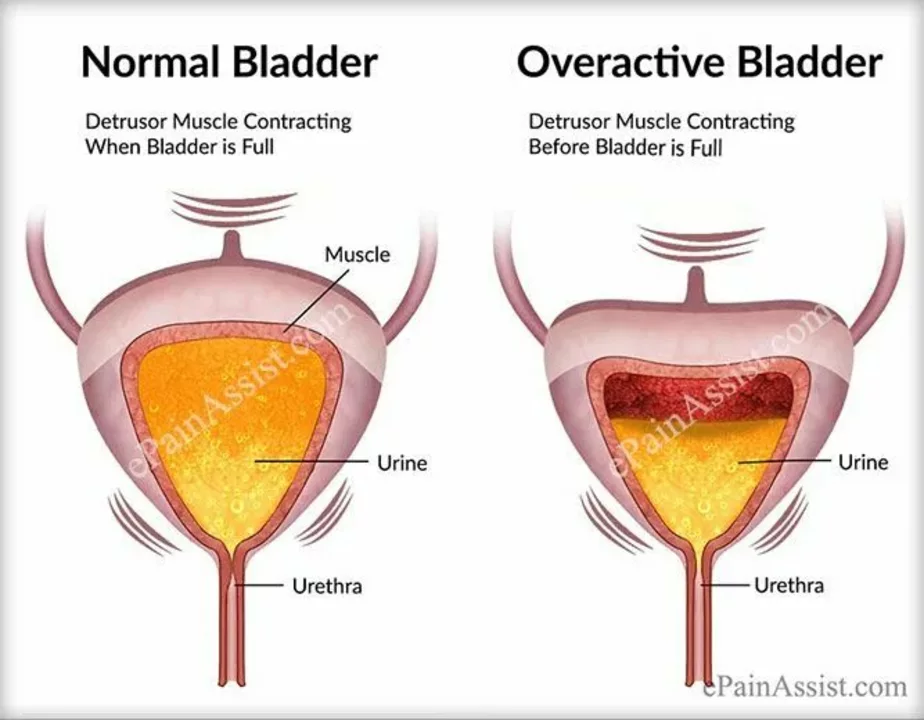April 2023 Archive — Practical Drug Tips from Pharmstore
If you missed our April posts, here’s a quick, practical roundup. We focused on everyday issues: managing bladder urgency, storing blood pressure meds safely, spotting antibiotic allergies, and how active vitamin D links to sleep. Read the short takeaways and useful next steps below.
Darifenacin and overactive bladder — what really helps
Darifenacin is an antimuscarinic medicine that calms bladder muscles. People who take it often see fewer leaks, less urgency, and longer time between bathroom trips. Common side effects are dry mouth, constipation, and sometimes blurry vision. Avoid darifenacin if you have narrow-angle glaucoma, severe urinary retention, or certain liver problems.
Practical tip: if dry mouth is bothering you, try sugar-free lozenges and sip water regularly. If constipation appears, add fiber and fluids or ask about a gentle laxative. Always tell your doctor about other meds — darifenacin can interact with drugs that affect liver enzymes or slow bowel movements.
Safe storage and disposal of Perindopril Erbumine
Perindopril erbumine treats high blood pressure and needs simple, safe handling. Keep pills in their original container at room temperature, away from heat and moisture. Store them out of children’s and pets’ reach.
When it’s time to dispose, don’t flush or toss meds in household trash. Use local take-back programs or pharmacy drop-off points. If no program exists, mix the medicine with coffee grounds or kitty litter in a sealed bag and throw that away — this makes accidental ingestion less likely.
Short checklist: original bottle, cool dry place, locked or high shelf, use take-back or mix-and-seal before tossing.
Ciprofloxacin allergies — what to watch for
Ciprofloxacin can cause allergic reactions. Watch for hives, itchy rash, swelling of face or throat, breathing trouble, or sudden dizziness. Those are signs of a serious reaction and need emergency care. Less severe reactions like a patchy rash still require you to stop the drug and call your doctor.
Note it in your medical record if you’re allergic. Future antibiotics should avoid the same class; your prescriber can pick safer alternatives and report the allergy so you don’t get the same drug again.
How calcitriol (active vitamin D) ties into sleep
Calcitriol influences circadian rhythm and melatonin, so low levels can make sleep worse for some people. Natural steps: get regular sunlight exposure, keep a consistent sleep schedule, and ask your doctor to check your vitamin D level before taking supplements. If levels are low, a targeted supplement under medical guidance often helps sleep and overall energy.
When to call your clinician: worsening symptoms, suspected allergic reaction, new severe side effects, or questions about mixing medicines. These April posts aim to give clear, usable steps — talk with your healthcare provider for choices tailored to you.

As someone who's dealt with overactive bladder symptoms, I can't stress enough the importance of finding effective ways to manage them. One medication that's been a game changer for me is Darifenacin. This drug works by relaxing the muscles in the bladder, reducing the frequency and urgency of urination. Since I started taking Darifenacin, I've noticed a significant improvement in my bladder control and overall quality of life. If you're struggling with overactive bladder symptoms, it might be worth asking your doctor about Darifenacin as a potential treatment option.
Chris Gore Apr 30, 2023
As a blogger, I've recently looked into the proper storage and disposal of Perindopril Erbumine, a medication used to treat high blood pressure. To safely store this medicine, it's crucial to keep it in its original container, away from heat, moisture, and direct sunlight, preferably at room temperature. Also, remember to store it out of reach from children and pets. When it comes to disposal, never flush it down the toilet or throw it in the trash. Instead, follow your local guidelines or talk to your pharmacist about take-back programs to ensure an eco-friendly and secure disposal of Perindopril Erbumine.
Chris Gore Apr 29, 2023
As a blogger, I recently came across a helpful guide about understanding Ciprofloxacin allergies. Ciprofloxacin is a powerful antibiotic that can sometimes cause allergic reactions in some people. This guide explained the common symptoms to watch out for, such as skin rashes, difficulty breathing, and swelling. It also offered advice on how to manage these allergies, including seeking prompt medical help and avoiding the drug in the future. I found this information incredibly valuable and wanted to share it with others who may be affected by Ciprofloxacin allergies.
Chris Gore Apr 27, 2023As a copywriter, I've recently researched the relationship between calcitriol and sleep, and I must say it's quite fascinating. Calcitriol, also known as the active form of Vitamin D, plays a crucial role in maintaining our overall health. I discovered that there is a strong connection between calcitriol levels and sleep quality, as it affects our circadian rhythm and melatonin production. Ensuring optimal levels of Vitamin D can lead to improved sleep and better overall well-being. So, don't forget to catch some sunlight or consider supplements to keep your calcitriol levels in check for a good night's sleep!
Chris Gore Apr 27, 2023Discover Pharmstore.com, your trusted online source for pharmaceutical products, medication guides, and health supplements. Led by Elias Goodridge, our team is dedicated to supporting your health journey with quality resources and professional guidance. At Pharmstore.com, we're committed to enriching your wellness experience with reliable healthcare solutions.
Chris Gore Apr 27, 2023The Terms of Service for Pharmstore.com encompass the guidelines and obligations for users of the online pharmacy platform. It outlines user responsibilities, acceptance of terms, product information accuracy, limitation of liability, and intellectual property rights. Users are urged to review these terms to ensure compliance and understanding of their contractual relationship with Pharmstore.com.
Chris Gore Apr 27, 2023This is the Privacy Policy page for Pharmstore.com, where we explain our policies regarding the handling of personal information. Our commitment to protect your privacy through transparent practices is detailed here, including the collection, use, and sharing of your data. You can learn about your rights and how to exercise them, as well as how to contact us with any concerns.
Chris Gore Apr 27, 2023Our Data Protection Policy at Pharmstore.com outlines our commitment to securing customers personal data in accordance with GDPR. This comprehensive policy details our practices for collecting, using, and protecting personal information, the customers' rights, and our contact information for any inquiries or issues related to data protection.
Chris Gore Apr 27, 2023Our Contacts page provides easy access to communicate with the Pharmstore.com team. You can find contact information for Elias Goodridge, our owner, along with a postal address and email for direct communication. For your convenience, there's a straightforward contact form for any inquiries or feedback. We're committed to responding promptly and delivering unparalleled service.
Chris Gore Apr 27, 2023



